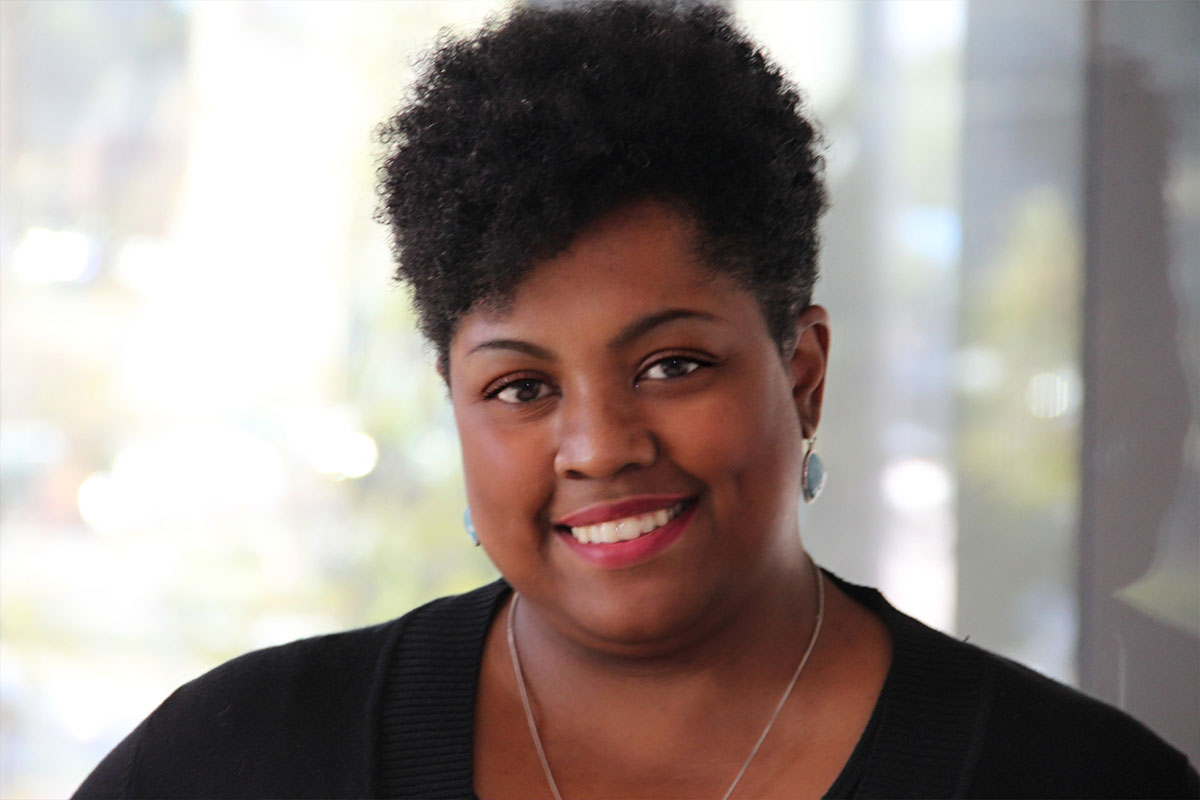In 2020, the dual pandemics of COVID-19 and racial injustice brought increased attention to the St. Louis education system’s profound inequities. These events caused Sherita Love to reexamine how to create an intentional space to accelerate transformation in local education with an explicit focus towards racial equity. Reflection and conversation with colleagues across the region led to the founding of The Education Equity Center of St. Louis.
Creating a Space for Innovation in Education
Love previously led EdHubSTL, a program of Venture Cafe St. Louis, launched in 2018 in response to the Ferguson Commission’s recommendation that the “St. Louis region look for ways to support innovation in education, giving special consideration to innovations that address systemic challenges and racial inequity through the development of an Innovative Education Hub.” Love joined as Founding Director, leading EdHubSTL’s initial vision and strategy, fellowships, and events. As part of Venture Cafe, EdHubSTL became well known as a convening space for conversations around education in St. Louis.
In 2020, increased educational disparities caused by COVID-19 and police violence led Love to reflect on how she could more directly address racial equity in education. “So many systems are not working for Black kids in our schools.” While EdHub STL centered conversations and convening around anti-racist education as a program of Venture Cafe St. Louis, there was room for deepened work to move those conversations toward systemic change. Educators needed a safe place to learn, and students needed to be included in the change process.
It became clear that for our community to deliver on the recommendation in the Ferguson Commission report, we’d need an organization explicitly committed to building the capacity for anti-racist education. “I felt an immediate and urgent need to take action,” says Love. “We saw the need and opportunity to go deeper in the work.”
Centering Racial Equity
With a planning grant and connection to best-in-class community-design support from The Opportunity Trust, Love launched a community visioning process to develop a plan for a new path forward. Love and her team first spent time internally setting a vision by reflecting on lessons from their work at EdHub STL and imagining the future by identifying what barriers inhibiting justice in education they were uniquely positioned to solve. “We had ideas based on anecdotal feedback over the years, but we didn’t want to launch without including community voice,” says Love.
This process resulted in Love and her team creating an initial vision for the Education Equity Center, which they shared through 1:1 conversations and focus groups with various stakeholder audiences, including past EdHub STL fellows, students, parent organizers, potential funders, and community leaders. They also conducted a broad survey through social media and held an open community presentation. During these community touchpoints, Love not only solicited feedback on the vision for the center, but also engaged in deeper conversations to identify the most pressing issues and the gaps not already being addressed by other local organizations.
The top three takeaways were, a desire to see an explicit and unapologetic commitment to anti-racism, a forward-looking, inclusive culture that was honest about past failures and encouraged people to work together across lines of difference to imagine and create a new system, and the importance of community in both a physical space and in relationships. Love and her team took this feedback and incorporated it into their plan for the Education Equity Center, which formally launched as a new non-profit in November of 2020.
The Education Equity Center’s mission is to build the anti-racist leadership capacity of educators towards the co-creation of a fully equitable education system in partnership with students, families, and organizations in the St. Louis region. By digging into the roots of inequity in St. Louis’s education system, The Education Equity Center has defined four key levers: 1) build the anti-racist leadership capacity of educators; 2) activate educators towards systems change; 3) partner to co-create equitable education in St. Louis; and 4) account and act on the data as a region.
What’s Next
In 2021, The Education Equity Center will focus its efforts on building anti-racist education capacity in local school districts, collaborating with other community-led organizations and impacted communities on a regional approach to a fully equitable k-12 education system, engaging with a student and family advisory board to support and drive strategy and accountability, and building a regional coalition of anti-racist educators. They are currently prototyping different types of responsive opportunities to bring their plan to life, including their recent conversation with emergent strategist and author, adrienne maree brown.
Love invites everyone to engage in The Education Equity Center’s work to create lasting and meaningful change. “We are pushing for deepened commitments to shifting outcomes for kids in St. Louis through a racial equity lens,” says Love. “There’s an opportunity to not just convene around the ideas, but to move towards action.”
You can learn more about the Education Equity Center by visiting their website and following their work on Facebook, Instagram, and Twitter. In April, they will be hosting Anti-Racist Education Saturday School Workshops. Register on Eventbrite.

